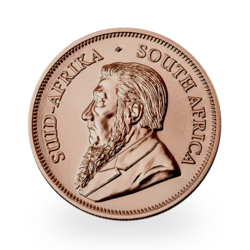By Corina Pons
Venezuela this month allowed a $1.7 billion gold swap with Germany’s Deutsche Bank AG to lapse, according to an opposition legislator who said it weakens the balance sheet of the crisis-stricken OPEC nation’s central bank.
Through the operation, Venezuela had received $1.2 billion in cash in exchange for putting up $1.7 billion worth of gold in guarantee, part of efforts to improve the liquidity of foreign reserves amid heavy foreign debt payments and low oil prices.
Legislator Angel Alvarado said the contract’s expiration weakens international reserves, which are hovering near 21-year lows as the country’s socialist economic model collapses under low oil prices.
“Venezuela decided to allow this contract to lapse,” said Alvarado in a telephone interview on Monday. “We think the government could have negotiated better.”
The central bank will receive another $500 million in cash to reflect the difference between the amount of the loan and the value of the guarantee, said Alvarado, who obtained the information from finance industry sources.
Venezuela had to pay $1.2 billion by the middle of October to recover the gold, he said.
Alvarado added that Deutsche officials informally contacted the opposition-run legislature several months ago to ask about the legal implications of rolling over the swap.
The legislature told Deutsche to put that request in writing, but it never did, Alvarado said.
Deutsche declined to comment. Venezuela’s central bank did not immediately respond to an email seeking comment.
The government of President Nicolas Maduro has used swaps in recent years as a way of boosting the liquidity of international reserves, nearly 75 percent of which were held in monetary gold in August.
Venezuela and state oil company PDVSA must pay nearly $3.5 billion in debt service in October and November, including maturity payments of $2 billion.
Bonds issued by Venezuela and PDVSA were down across the board on Monday, with some falling as much as 2.5 points.
Traders attributed the decline to increased nervousness over delayed coupon payments.
The heavy payment schedule has left the government with limited hard currency for imports of basic items such as food and medicine, spurring product shortages and leaving millions struggling to eat.
Maduro says the government is victim of an “economic war” led by political adversaries and fueled by several rounds of economic sanctions by Washington.
Original source: Reuters
Reproduction, in whole or in part, is authorized as long as it includes all the text hyperlinks and a link back to the original source.
The information contained in this article is for information purposes only and does not constitute investment advice or a recommendation to buy or sell.

















